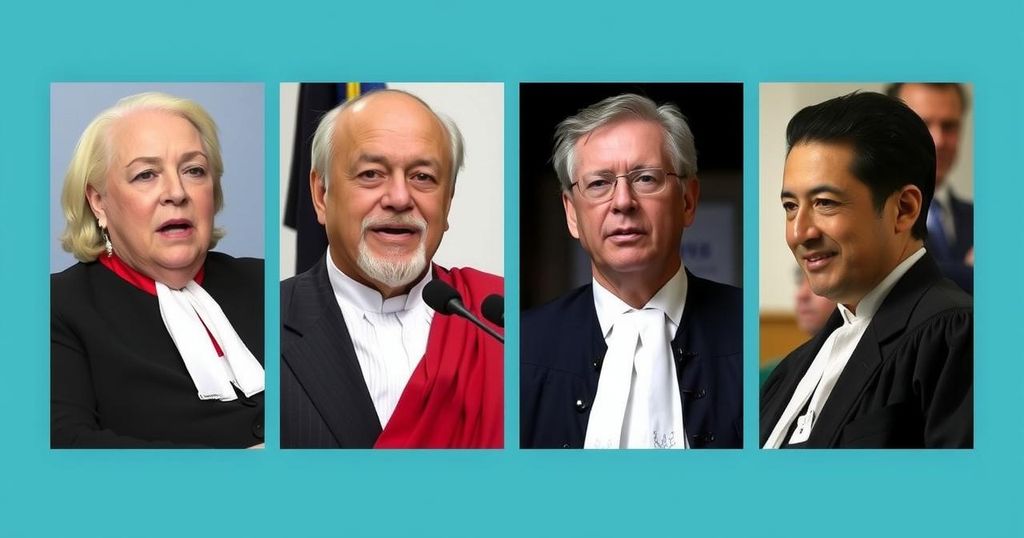Bolivia’s Judicial Election: Democracy at a Crossroads

Bolivia’s direct elections for its judiciary reveal significant public disaffection and concern over politicization within the courts. The current electoral situation is complicated by tensions between political factions, raising questions about the legitimacy and effectiveness of the system. With historical context indicating challenges to democracy, this election may offer vital insights for Bolivia and its regional counterparts considering similar reforms.
Bolivia is unique in its practice of allowing citizens to vote for their top judicial officials, an approach that has sparked significant debate regarding its impact on democracy and judicial independence. Despite an official ban on campaign-related activities, certain candidates have resorted to creative, albeit unofficial, methods to raise their profiles among an electorate that often feels uninformed about the voting process. The upcoming elections reflect deep-rooted tensions and concerns over the politicization of judicial roles and the integrity of the electoral process.
This voting system emerged following a change from a qualification-based nomination process over ten years ago, aimed at combating corruption but resulting in courts viewed as extensions of political patronage. As Bolivian voters approach this latest vote, many reflect apathy towards the process, citing disillusionment with how judicial elections have diluted the impartiality of the courts.
Past elections have faced allegations of illegitimacy and have often resulted in low voter turnout, as many citizens reject the concept of endorsing candidates whom they feel are pre-selected by political factions. Indeed, the history of judicial reforms under former President Evo Morales reveals a pattern in which political maneuvering influenced judiciary appointments to the detriment of democratic values.
Political maneuvering has not only affected elections but has also influenced judicial independence itself, especially as the current political landscape features disputes between present President Luis Arce and Morales. The postponement of this election, justified by Arce as necessary to maintain party stability, has drawn criticism from various sectors, including the Inter-American Court of Human Rights, which warned about the potential implications for the judicial system’s functioning.
As the electoral process unfolds, it remains crucial to observe the dynamics between the judiciary and the political landscape. The outcomes could offer significant lessons not only for Bolivia but also for other nations, such as Mexico, which is contemplating a similar approach to judicial appointments.
Bolivia remains the only country in the world to adopt a system where citizens vote directly for their top judges. This process, initiated over a decade ago, replaced a more traditional system based on qualifications. While the aim was to enhance democracy and reduce corruption within the judiciary, the results have been controversial, leading to concerns surrounding the politicization of the courts. The recent political landscape, featuring disputes between President Luis Arce and his predecessor Evo Morales, has raised questions regarding the integrity of judicial elections and their influence on democracy in the region.
In conclusion, Bolivia’s unique approach to judicial elections presents both opportunities and challenges for its democracy. The potential for political affiliations to jeopardize the impartiality of the judiciary underscores the need for a balanced and transparent electoral process. As Bolivia moves forward with its elections, the outcomes will likely influence future legal practices and democratic governance across Latin America, notably as countries like Mexico consider adopting similar reforms.
Original Source: abcnews.go.com







